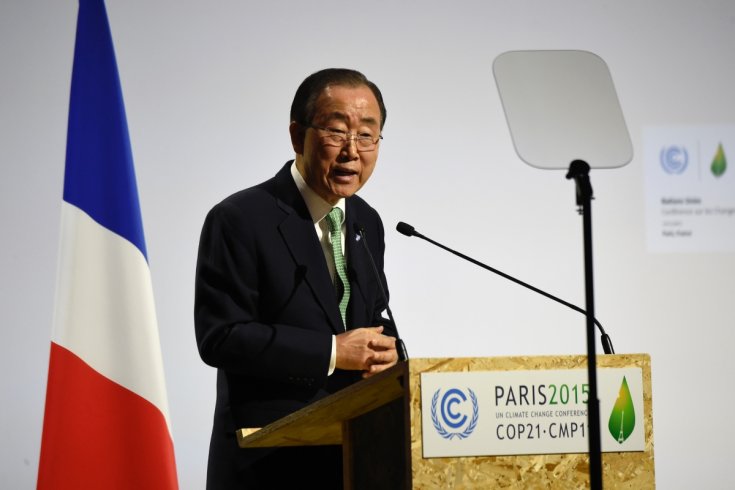Partners of a new UN-led platform to mobilise and accelerate action on climate resilience agreed on Friday to move ahead with plans that will help meet the needs of a growing global population that is being impacted by climate change.

UN Secretary-General Ban Ki-moon’s Initiative on Climate Resilience, known as A2R (Anticipate, Absorb, Reshape), was launched by world leaders during the Paris Climate Conference last year.
The A2R Leadership Group comprises Germany, Egypt, Morocco, Samoa, the World Bank, the Rockefeller Foundation’s Global Resilience Partnership; Bangladesh based philanthropic Bank BRAC, Insurance Development Forum (IDF), Red Cross and Red Crescent Climate Centre, Yale Centre for Environmental Law and Policy, the United Nations Office for Disaster Risk Reduction (UNISDR), Food and Agriculture Organisation of the United Nations (FAO) and UN Environment Programme (UNEP).
The Leadership Group is charged with implementing the transformational vision embedded in the Paris Agreement, the Sendai Framework for Disaster Risk Reduction and the Sustainable Development Goals (SDGs) through an unprecedented global multistakeholder partnership.
It will catalyse climate change adaptation and disaster risk reduction efforts to support people in addressing the challenge of climate change, contributing to achieving the Sustainable Development Goals (SDGs).
In the past two decades, 4.2 billion people have been affected by weather-related disasters such as floods, droughts and storms, including a significant loss of lives. At the same time, climate change is increasing at an unprecedented pace. Global surface temperatures and Arctic sea ice extent broke numerous records in the first half of 2016. In addition, each of the first six months of 2016 set a record as the warmest respective month globally in modern temperature records, which date to 1880.
“We have no time to lose,” Mr. Ban told the Leadership Group. “The global thermostat continues to rise. Each month brings new temperature records and more floods, droughts and extreme weather events. Vulnerability to climate risk continues to increase. This translates to greater humanitarian need and more economic losses.
“The A2R initiative will help countries secure expertise and financial resources for strengthening climate resilience. Today’s launch of the Leadership Group establishes A2R’s place within the UN system.”
“More than a tenth of the world’s population faces climate risks,” said Ibrahim Thiaw, deputy head of UNEP. “The A2R initiative cannot solve this major challenge alone: we must work with the best partners to deliver more effective, scaled up action on climate resilience on the ground.”
The A2R initiative addresses the needs of the nearly one billion people who live in at-risk coastal areas just a few meters above rising seas, as well as those living in areas at risk of droughts, floods, storms and other climate-related risks.
“The hardest hit are the poor and vulnerable, including smallholder farmers, fishers, foresters and the indigenous – the same people who provide the bulk of our planet’s food,” said Maria Helena Semedo, Deputy Director-General of FAO. “To feed a growing global population in a changing climate, we must support farming families to adopt risk sensitive agriculture for more productive, resilient and sustainable food systems.”
UNDP Administrator Helen Clark said, “Building resilience is at the heart of UNDP’s efforts to promote a more inclusive and sustainable future for all. Climate change threatens livelihoods and erodes opportunities for poverty eradication.”
A2R focuses on accelerating climate resilience for the most vulnerable before 2020 by strengthening three elements: the capacity to better anticipate and act on climate hazards through early warning and early action; the capacity to absorb shocks by increasing insurance and social protection coverage; and the capacity to adapt development to reduce risks at the local, national, regional and international level.
At its first meeting on Saturday, 24th September, the initiative’s Leadership Group and partners will discuss the need for measurable targets for each of the three pillars of A2R and ensure a high profile for A2R’s role in promoting the importance of climate resilience at the next global climate meeting (COP22) in Marrakech.
